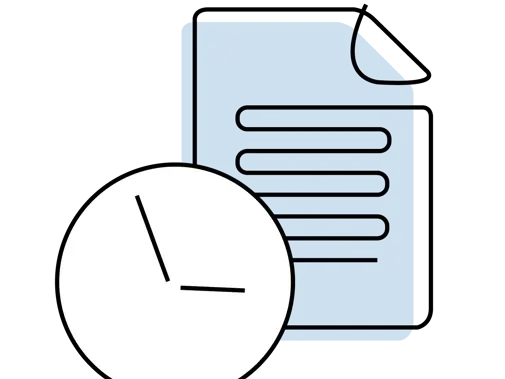Each year the job plan review will identify whether there is need for change in your current job plan. You don’t need to wait for your annual job plan review if your circumstances have changed, affecting your work requirements or workload. Either you or your clinical line manager can request an interim job plan review at any time.
Remember that the job plan review and appraisal process are separate and should be held at different times.
Preparing for the review
The review meeting is an opportunity to reassess and consider any significant changes to your working life and the services you deliver. It should build upon the substantial work done in the first job plan meeting (and subsequent reviews).
In most cases, there will be a large measure of stability, since the extent of change from year to year is likely to be limited unless there has been a significant restructure of services.
You should not agree to a change in your job plan that you do not think is clinically justified or contractually compliant. If you have concerns that the proposed changes go beyond what you can be reasonably asked, it is worth checking with one of our advisers.
In preparation for the job plan review, you should:
- ensure that all the work you have been doing is recognised with an appropriate allocation of programmed activities (PAs) or sessions
- ensure that workload problems and workforce gaps are identified and addressed
- ensure that resources to support the job are adequate and that any need for expansion of resources (including additional consultants) is identified
- ensure that job plans are adapted to reflect additional time requirements arising from new developments in the health service, such as additional administrative work required by new legislation
- identify changes in the job which may increase the ability to deliver a quality service to patients
- promote career development by allowing for a change in your role
- clearly set out agreed objectives for the coming year and provide detail on supporting resources needed to achieve those objectives.
How to negotiate in your job plan review
The job plan review is, in part, a negotiation since you and your manager may sometimes have differing and conflicting aims and objectives.
Very often, you will experience no difficulty in reaching agreement. Many difficult areas are likely to have been dealt with and resolved in the first job planning agreement.
However, you should note the following points as a brief guide to managing any negotiations that may arise.
- Be thorough in your planning and preparation, so that careful consideration is given to what you want to achieve.
- Plan a strategy and set yourself clear goals.
- Consider what are likely to be management’s goals and strategies.
- Assess strengths and weaknesses, both your own and managements.
- Use the strength of collective team positions where possible. A common position among a group of doctors working in a similar area is more likely to be successfully achieved.
- Be assertive in terms of your position, but avoid a confrontational approach. Do no be overawed by the organisation’s power. It is important nevertheless to build a solid basis of agreement for future discussions.
Many of our members report that they feel that they have been bullied by management at some stage in the job planning process. If you feel that you have been bullied or excessively coerced, ask to adjourn the meeting and seek advice and support from the BMA.
Remember that your existing job plan remains contractual and must be abided by until change is agreed or until after the conclusion of the appeals process.
Evidence in job planning
A diary, with details of the actual work that you do each week, is the most important source of data for your job plan review. This information can be used to negotiate changes to your current job plan (proposed by you or by management). You should carry out a diary exercise for at least 6 weeks to gather useful insights into your work patterns that can be presented in your job plan review. For doctors with more flexible job plans, a longer period of tracking is recommended.
Dr Diary
- Confirm your new contract in the employer section of Dr Diary to ensure you are recording your activities correctly.
- Don't have the app? Download Dr Diary on iOS or Android.
The BMA offers members a job planning tool for NHS consultants, SAS doctors and medical academics called Dr Diary.
It allows you to:
- track your time accurately
- evidence your workload
- produce a report providing an overview of your activity
- compare work scheduled in your job plan to work you've actually undertaken.
How data is used to review effectiveness and efficiency
The data used by management in the review process will likely be related to an activity, for instance quantitative and qualitative targets in the systems. The data in the systems could relate to outpatient numbers, patient throughput, theatre utilisation, etc.
This type of data can sometimes be misleading, because it could only be relevant in a team context. It is important that enough notice is given to doctors to enable them to make sense of the information and respond to its intended purpose.
You should seek to reach an agreement on what management considers to be reasonable activity levels to inform and support negotiations with management on such matters.
Mediation and appeals
In the event that you are unable to reach agreement with your employer about your job plan, the consultant and SAS contracts set out mediation and appeals processes to be followed.

Sign up to the BMA newsletter
- Read the BMA’s award-winning articles and interviews
- Find out about upcoming webinars and events designed to grow your skills and support your career
- Learn more about what support is available to doctors like you

